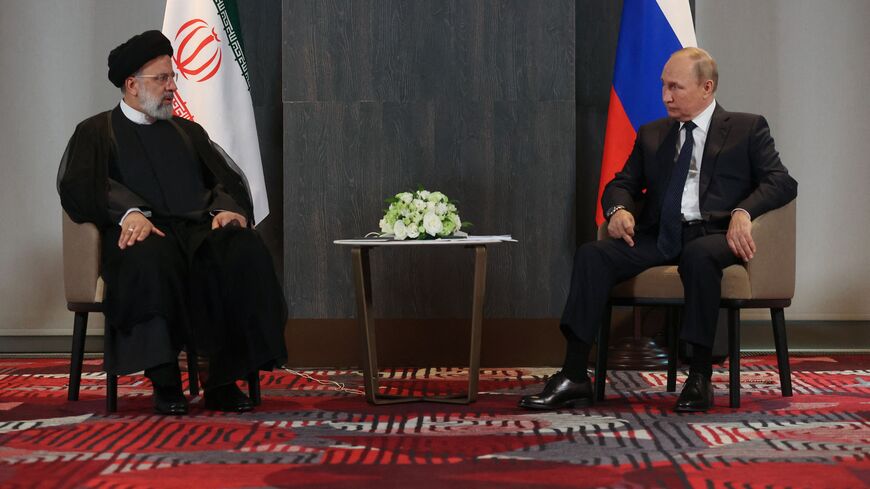Iran on Wednesday summoned Russia's ambassador in Tehran, Alexey Dedov, after a statement Moscow made in favor of the United Arab Emirates (UAE) and against Iran's claim to the contested three islands.
On Monday, Russia and the Gulf Cooperation Council (GCC) issued a statement calling for a “a peaceful solution” to the dispute over the Abu Musa and Greater and Lesser Tunbs islands “in accordance with international law." The statement followed a daylong meeting that Russian Foreign Minister Sergey Lavrov hosted in Moscow. Iran then summoned the ambassador to voice its “objections on the content of the statement,” Agence France-Presse reported.
The dispute over the Abu Musa, Greater and Lesser Tunbs islands dates back decades. Iran seized control of the islands on Nov. 30, 1971 — just two days before the UAE became a country. The UAE claims sovereignty over the islands, but Iran still administers them and has repeatedly defended its claim.
Separately, Kuwait returned 11 prisoners to Iran late on Tuesday, a move that follows the resumption of relations between the two countries but also comes amid a lingering gas dispute.
The prisoners were handed over to Iran as part of an extradition treaty between Iran and Kuwait. The Arab Gulf state did not provide details or comment on the transfer. But the move followed a bilateral meeting between Iran and Kuwait in March to discuss legal issues, the official Islamic Republic News Agency reported on Wednesday.
The committee discussed then maritime security and border issues, according to a release from Iran’s Ministry of Foreign Affairs.
Why it matters: The summoning of the Russian ambassador constituted a rare public display of friction between Iran and Russia. The two countries are close allies, evidenced by Iran's military support for the Russian invasion of Ukraine. Earlier this month, Iran joined Russia in the Shanghai Cooperation Organization.
But Russia also maintains very close relations with Abu Dhabi. UAE President Sheikh Mohammed bin Zayed has been hosted twice by his counterpart, Vladimir Putin, since Russia's invasion of Ukraine in 2022.
On the other hand, Iran’s relations with Kuwait have shown some improvement over the past year. Kuwait recalled its ambassador in Tehran in 2016 in solidarity with Saudi Arabia after Iranian protesters attacked Saudi diplomatic missions following the kingdom’s execution of Shiite cleric Nimr al-Nimr.
Kuwait resumed normal relations with Iran in August of last year. This came amid talks between Saudi Arabia and Iran on improving their relations. Saudi Arabia and Iran in turn reestablished relations this past March.
However, the ongoing thaw is still fragile. Kuwait and Iran have been at odds over a territorial dispute this month involving the Durra gas field in the Gulf. The field has been disputed for decades, but the issue has heated up recently. In June, Iran's state oil company stated its plans to develop the field. This prompted responses from Kuwait and Saudi Arabia earlier this month, with both declaring the entirety of the Durra lies within their neutral zone and urging negotiations.








